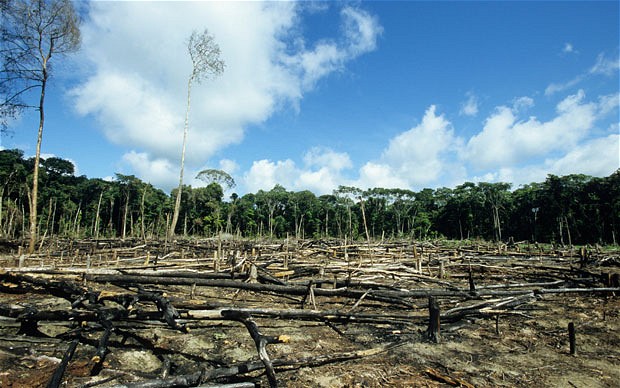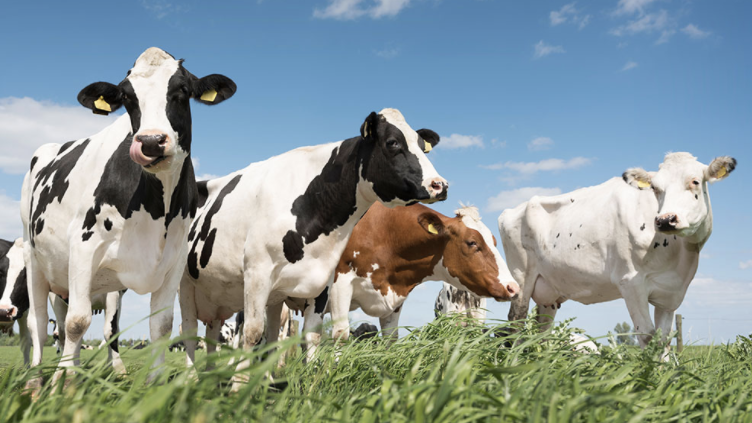Food and land sectors are the main focus when it comes to the global response to climate change. These sectors are responsible for around one third of the global greenhouse gas emissions – primarily Carbon Dioxide, Methane and Nitrous Oxide. The source of these gaseous emissions is typically from agricultural activities, deforestation, land degradation & emissions from the food supply chain. Both the food and land sector are responsible for absorbing carbon from the atmosphere – so to tackle climate by achieving net zero CO2 emissions by 2050 as well as remaining below 1.5°C of global warming – it is important to focus on these sectors to act as carbon sinks.
Land also provides the principal basis for humanity and well-being: the way we manage and use our land will determine food and freshwater security, land also provides a home to local and Indigenous communities as well as biodiversity worldwide. As well as that, the food system is highly complex and is driven by many economic, cultural and environmental factors.
With the global human population anticipated to reach 8 billion by 2030 and over 9 billion by 2050 which increases the demand for creating a more varied and high-quality diet, while requiring additional resources to produce. There is also a considerable share of the world’s population that are suffering from malnutrition or undernutrition (European Commission, 2016).

A series of events at COP26 explored the net zero emissions target for the agricultural and food sectors, some of the announcements, agreements and pledges are outlined below.
At the beginning of COP26, two major announcements relating to deforestation were made during the World Leaders Summit. Firstly, 130 countries signed the Glasgow Leaders Declaration on Forests and Land Use which promises to stop and reverse, where possible, deforestation and land degradation by the year 2030. Secondly, a joint programme between the UK and Indonesia – Forest, Agriculture and Commodity Trade (FACT) – aims to support sustainable trade between commodity producing and consuming countries.
In relation to the agricultural sector, there were several major announcements formally launched at the summit, although a lot of these announcements rely on voluntary actions with no enforcement mechanisms. Such announcements include: were the Global Methane Pledge, the Policy Action Agenda for a Just Transition to Sustainable Food and Agriculture and the Agricultural Innovation Mission for Climate (AIM4C). The Global Methane Pledge was one of the headline announcements that involves a US- and EU-led initiative with over 100 countries signing the pledge to reduce methane emissions by 30% between now and 2030. Governments recognised that soil and nutrient management practices are essential in providing climate resilient and sustainable food production systems which can assist in achieving global food security (Chandrasekhar & Viglione, 2021). Furthermore, it was also noted that although livestock management systems are vulnerable to the effects of climate change – reducing greenhouse gas emissions can be achieved by improving animal health and sustainable production which also contribute to enhanced carbon sinks and grazing pastures. Lastly, Governments agreed on the need to continue working on Agriculture under the UNFCCC process with a view to adopting a decision at COP 27 in 2022 (UNFCCC, 2021).

Many countries that have substantial forest cover, land and food footprints announced updated climate pledges either days before or during COP26.
- Australia which is the world’s second largest cattle exporter and has the third largest agricultural landmass, announced its net-zero by 2050 strategy three days before COP26.
- Brazilannounced a new target to cut its emissions in half compared to 2005 levels by 2030.
- At the beginning of COP26, Nepal which is largely dominated by mountains and forestry, published its long-term strategy that outlines goals to achieve net zero forest degradation and reduce deforestation by 90% by 2030.
- Argentina which is among the world’s biggest producers of beef and animal feed crops, published their updated NDC on 2nd of November which pledges to slightly reduce agricultural emissions to 349MtCO2e by 2030 (Chandrasekhar & Viglione, 2021).
What happens after COP26?
Since the promises made at COP26 are not legally binding, individual countries need to come forward within the next year to turn their pledges into law and follow through on their promises.
However, the journey to achieve net zero in the agricultural sector has no single answer and therefore requires the commitment of several parties working together to achieve a shared desired outcome. Although farmers and landowners are willing to do their part to protect the plant, consideration needs to be given to financial and practical supports for them to achieve such goals outlined at COP26.
For example, practices such as:
- Implementing new technologies to for estimating enteric fermentation from cattle livestock emissions.
- Improving resource use efficiency of farming across all sectors.
- Boosting the production of land based renewable energy – such as bioenergy – to promote carbon capture, use and storage.
Even though COP26 may not have provided concrete laws, it was certainly effective in getting the world talking (both positive and negative) and concerned about the future of our planet.
Bibliography
Chandrasekhar, A. & Viglione, G., 2021. COP26: Key outcomes for food, forests, land use and nature in Glasgow. [Online]
Available at: https://www.carbonbrief.org/cop26-key-outcomes-for-food-forests-land-use-and-nature-in-glasgow
[Accessed 29 November 2021].
European Commission, 2016. Sustainable Food. [Online]
Available at: https://ec.europa.eu/environment/archives/eussd/food.htm
[Accessed 29 November 2021].
UNFCCC, 2021. COP26 Sees Significant Progress on Issues Related to Agriculture. [Online]
Available at: https://unfccc.int/news/cop26-sees-significant-progress-on-issues-related-to-agriculture
[Accessed 29 November 2021].